Chinese city offers trial coronavirus vaccine and people are queueing for it
A community hospital in Yiwu, Zhejiang, is offering coronavirus vaccinations to the public, as long as they make online bookings and offer proof of work or study in Yiwu. But how reliable are these proofs, and how effective is the vaccine? Zaobao correspondent Chen Jing finds out more.
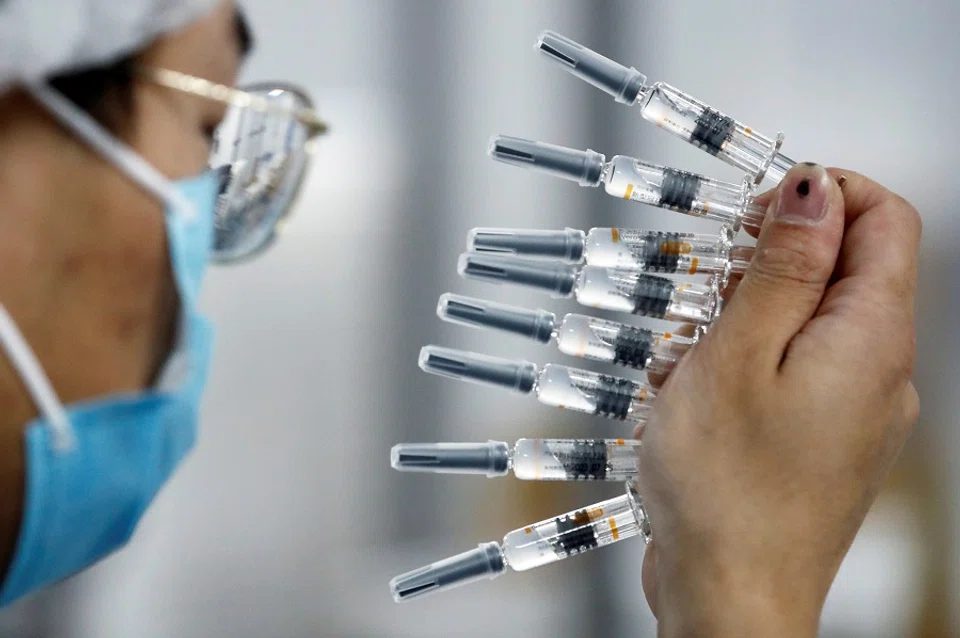
Shanghai, Jiangsu, Guangdong - people from all parts of China are flocking to the Jiangdong Street Community Health Services Centre in Yiwu, Zhejiang, to get vaccinated against the coronavirus. But with the authorities tightening the conditions for advance booking, this batch of vaccines - which has yet to hit the market - is a scarce commodity. And yet China's unique advantage in the international race for a vaccine is its large vaccination base.
Liu Xiao (pseudonym) is about to head to central Asia for work. This week, he and his colleagues took a seven-hour train ride from Guangdong to Yiwu, but when he got to the Yiwu community hospital early in the morning a couple of days ago, he was told that he needed to first make an online booking and get approval before getting vaccinated.
The community hospital located in southern Yiwu is currently one of the few organisations providing coronavirus vaccinations for residents from out of town. When vaccinations began a month ago, the queue was never-ending. This reporter understands that demand has outstripped supply and only those who make online bookings can get vaccinated.
The conditions seem strict, but a person who made a booking told Lianhe Zaobao that a stamped proof of employment from any local company would do, because "they won't really check if you work here".
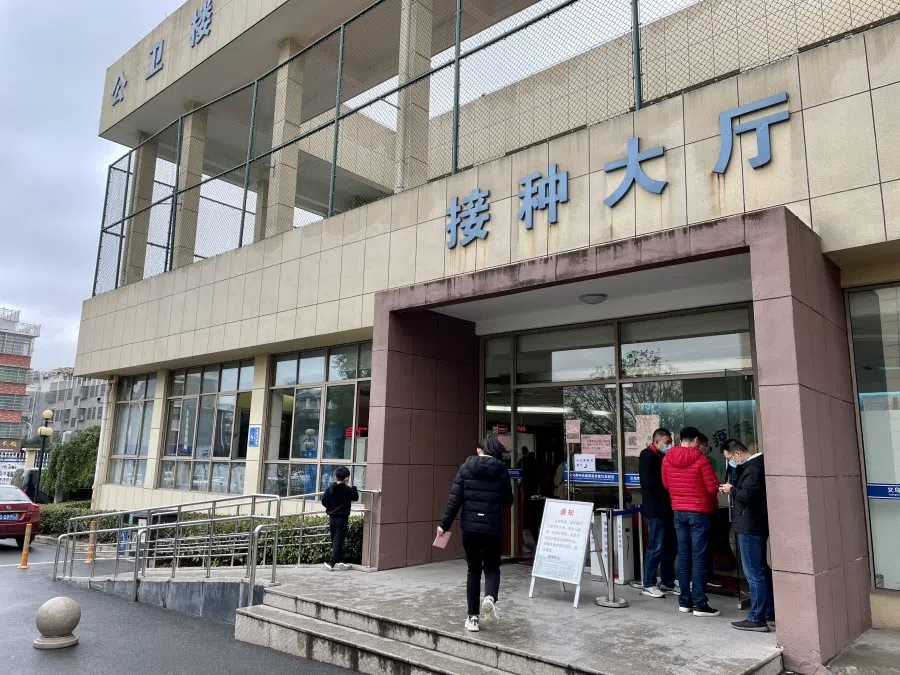
The mobile phone booking page shows that the vaccinations are limited to Chinese citizens, and applicants from outside of Yiwu have to provide proof of business, employment, or study in Yiwu, as well as ticket stubs of recent flights abroad. The conditions seem strict, but a person who made a booking told Lianhe Zaobao that a stamped proof of employment from any local company would do, because "they won't really check if you work here".
After hearing this "secret", Shanghai university student Wang Hui (pseudonym) decided to get a friend in Yiwu to issue a proof of employment for him. Wang Hui is heading to Europe for studies next year, and to give his family peace of mind, he decided to get vaccinated before his trip. Alas, there was no response to his application. Now he has no choice but to head to Yiwu to try his luck in person.
... thousands of people have made bookings to get vaccinated, but not everyone gets their request approved.
Over 740,000 vaccinations in Zhejiang since September
There are many like Liu and Wang who have been shut out. The staff at the community hospital revealed that thousands of people have made bookings to get vaccinated, but not everyone gets their request approved. Two days ago, about 60 people were vaccinated, about half the number a month ago.
In the second half of July this year, China approved the "emergency use" of the vaccine to quickly vaccinate high-exposure and high-risk groups like front-line healthcare workers and border personnel. Zhejiang with its high-volume external trade was the first area to provide vaccinations for the public. Chen Guangsheng, vice secretary-general of the Zhejiang provincial government, disclosed in mid-October that there have been over 740,000 vaccinations in Zhejiang since September.
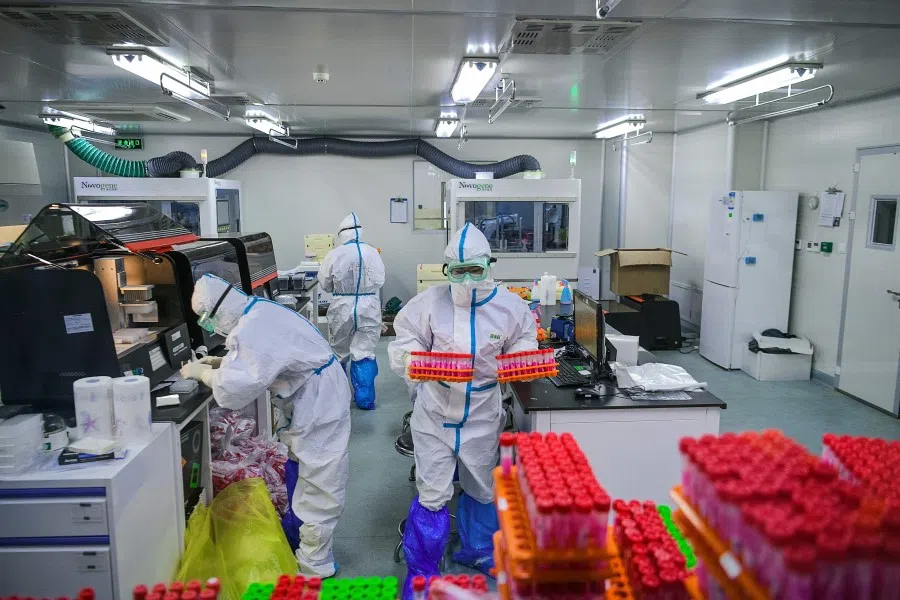
However, further investigation by Zaobao shows that Yiwu is the only city that has opened vaccination appointments to Chinese outside of the city. In other cities in Zhejiang such as Shaoxing, the Shaoxing health commission asked residents who wished to take the coronavirus vaccine to register online via their official WeChat account about a month ago. However, local community hospitals told Zaobao that they have yet to offer vaccination services now, and have not even received the vaccines.
Notably, these vaccines are in the third phase of clinical trials and have not been officially launched yet.
In Jiaxing city where information on coronavirus vaccines was released even earlier, vaccines have already been distributed to the community. When asked, medical staff at Nanhu Xinxing Residential District Community Health Service Center said that they only offer the vaccines to residents in the community and that around 50 or 60 people have made appointments to be vaccinated. However, they said, "We don't even have that many vaccines on hand now."
The coronavirus vaccines that Yiwu and Jiaxing are offering are developed by Beijing's Sinovac Biotech. Notably, these vaccines are in the third phase of clinical trials and have not been officially launched yet. Two doses of the vaccine are to be taken at a 14- to 28-day interval, and cost a total of 400 RMB (S$81.50).
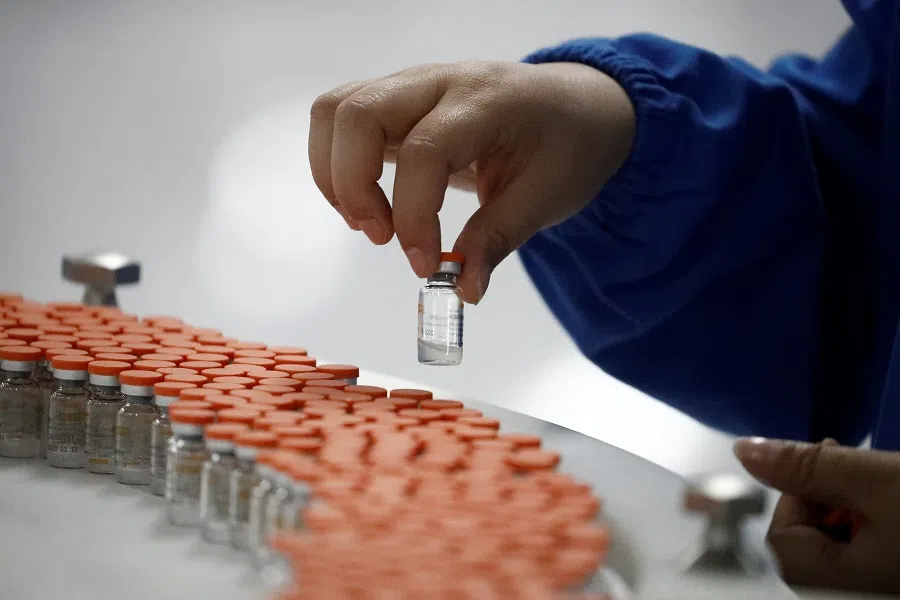
Sinopharm's vaccines already used on about a million people
Another vaccine research and development organisation, the China National Pharmaceutical Group (Sinopharm), also accepted vaccine appointments for a time but closed such bookings shortly after.
Yesterday, Sinopharm applied for approval from the National Medical Products Administration to launch their vaccine. If the vaccine is approved quickly, Sinopharm could overtake US pharmaceutical giant Pfizer to launch the world's first batch of vaccines, demonstrating China's prowess in catching up with the vaccine race.
However, in the eyes of the international community, Chinese vaccine research and development organisations are still dubious in terms of their level of information disclosure and transparency.
Last week, Sinopharm Chairman Liu Jingzhen said that their vaccine has been used on nearly a million people and there has not been any reports of serious adverse reactions. There have only been a few reports of mild symptoms developing after vaccination. In contrast, the UK's AstraZeneca and the US's Johnson & Johnson both halted their vaccine trials after participants reacted negatively to the vaccine candidate.
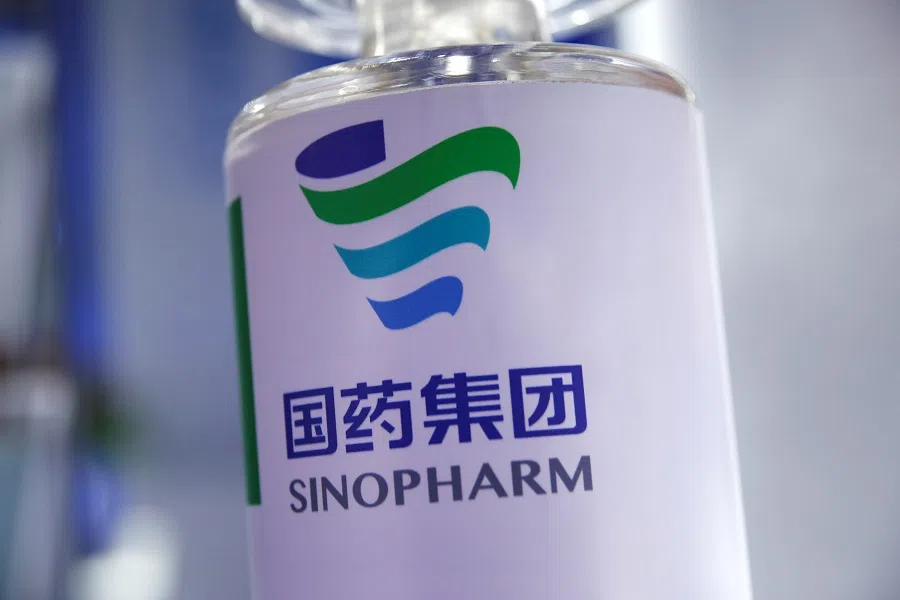
However, in the eyes of the international community, Chinese vaccine research and development organisations are still dubious in terms of their level of information disclosure and transparency. For example, Chinese officials do not clearly define and explain "serious adverse reactions". This also puts a question mark on the safety and effectiveness of China's vaccines.
the side effects of the vaccine are nothing compared to the consequences of being infected with the coronavirus. - Liu Xiao (pseudonym), Chinese resident
Residents wanting to be vaccinated in Yiwu have to first sign an informed consent form declaring their understanding that the vaccine may bring about adverse effects including pain at the injection area, fever, swelling, and even anaphylactic reactions.
But Liu thinks that the side effects of the vaccine are nothing compared to the consequences of being infected with the coronavirus. He cares more about whether he can finally embark on his six-month-delayed stint overseas. Two nights ago, Liu was notified that he could take the vaccine the next day. He heaved a huge sigh of relief, "After I take this shot, I can take another one half a month later. Then, I can finally go overseas."





